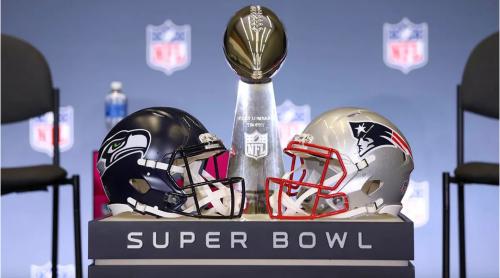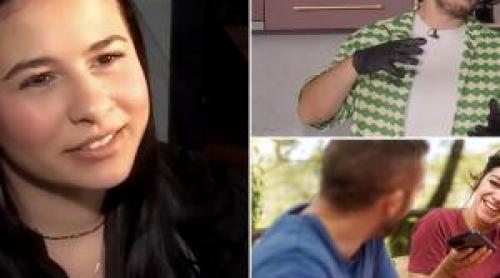Censorship, cartelism, and oligarchy in the media. The competition between politics and the mass media. All these issues have been discussed upon during the debate organized by Jurnalul National on Wednesday night.
 |
INTEREST. Journalists, sociologists, politicians and analysts have attended the debate organized by Jurnalul National.
|
Censorship, cartelism, and oligarchy in the media. The competition between politics and the mass media. All these issues have been discussed upon during the debate organized by Jurnalul National on Wednesday night.
A Romanian premiere, a poll that emphasizes the political preferences of the journalists, the first one of this kind, made it possible for the media representatives and the important politicians to be face to face. President Traian Basescu, the Bucharest Mayor, Adriean Videanu, and leaders Emil Boc (DP), Marko Bella (DUHR), Dan Voiculescu (CP) and Mircea Geoana (SDP) have accepted the invitation from Jurnalul National to a confrontation with the journalists. The debate started from a question asked by Marius Tuca: is the media influenced by politics or the other way around. Mircea Geoana admitted there is an influence, and he referred to the moments in the past, when SDP (the Social Democratic Party) used to have the power and there was a "rough relationship" with the media because of an "interaction between the state publicity and a certain amount of > from the journalists". Geoana showed that this, together with the leaders that thought they were irreplaceable, caused the "cold relationship" between the media and SDP, but he said he hoped for it to get warmer. What is the present situation according to the SDP leader? "We are facing a reorganization of the media in media cartels, generated and governed by very powerful and influential economical groups. The risk we could be facing in the next years, as far as the freedom of the press is concerned, could be generated by the appearance of certain economical polls that could control the both sides, the politics and the media", Geoana said. However, journalist Robert Turcescu interrupted the SDP leader. He said "in politics, the message is often lost between words". "I want to reproach you with something. For the past 17 years, the politicians havenât been able to produce communicators besides themselves. We are in the paradoxical situation of having to face the same people", the journalist told the politicians present at the meeting.
POLITICAL CONCERNS
 |
REFUSAL. President Traian Basescu didnât want to be the first to speak.
|
The DP (the Democratic Party) leader, Emil Boc, said the society was yet to draw a line between the political power and the power of the media, but he looked concerned about certain aspects of the CURS poll, the one at the base at this entire debate. The first aspect: censorship. "40% of the journalists say they had at least one article censored. I ask myself: what is wrong? Is it wrong that the journalist doesnât say "no" when he is asked to censor or is it wrong to ask for the censorship and defy the Constitution?". Number two on the list, the DP leader was taken by surprise by the answer of 31% of the journalists as far as communism was concerned ("it was a good idea, but it was implemented in the wrong way"), and he said that this journalistic matter was to be seriously taken into consideration. However, Boc thinks the media is instrumental. "A politician cannot get success without the media, because he cannot send his message", the democrat leader said. He added his colleagues "shouldnât complain about the lack of support from the media or about the malefic vision of certain journalists". His colleagues should learn to build their messages. The DUHR (the Democratic Union of the Hungarians in Romania) leader, vice-PM Marko Bela, emphasized the permanent competition between the media and the politicians. "Sometimes, I believe the competition between the media and the politicians is evil. The politicians, as well as the press, are trying to tap topics⦠The winner is never the same. However, the public seems to be the loser of this competition each time", Marko explained.
MEDIA AND FOOTBALL
The media didnât have the best period during the SDP Government, but the situation isnât much better at present either. This is the idea of political analyst Ion Cristoiu, who talked about manipulation with "daily political shows and materials from the sources" as well as about the press "oligarchies" in nowadays media, the owners he meant. "The present situation of the media is similar to the one of the football clubs. (â¦) The oligarchies in the media are quite dangerous. The Oligarchy in the media is some sort of Gigi Becali in football. It does things on its own", Cristoiu showed, emphasizing this was the greatest danger for the media, but not the cartelism. Ralu Filip, the NCAV (the National Council for Audio-Video), doesnât see any of these aspects as being dangerous. "The greatest danger for the press is to have no more public, no more financings," Filip said, while Emil Boc admitted the existence of the cartelism in the Romanian media, where it is seen as normal, but only to a certain point. "There should be transparency in all the layers", Boc said targeting the finance sources.
BASESCUâS PEEVISHNESS
After refusing to be the first one to talk, President Basescu didnât get to talk at all, because he got the huff and left. He didnât like the words coming from the journalist from the "Ziua" newspaper, Victor Roncea, who pointed out several mistakes of the President in his relationship with the journalists. Basescu left the room, and the ones that remained in the room applauded. "This is unacceptable. This is the expression of the politician that has the power and wants only praises, or else he leaves", Ion Cristoiu commented.
"WRINKLED" JOURNALISTS
Political analyst Iosif Boda believes the journalists have a pretty "wrinkled" image in the CURS poll. The fact that the options of the journalists are totally different from the ones of the public opinion means "the press hardly influences the public opinion". Sociologist Pavel Abraham explained the result of the poll was also influenced by the reservation of the journalists towards two aspects: the polls, and the public expression of their "own beliefs".
Translated by Sorin Balan




















